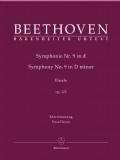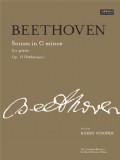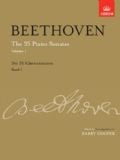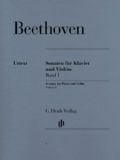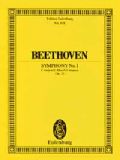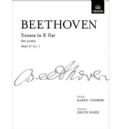
Ludwig van Beethoven
For many Beethoven is the archetypal creative artist, writing some of the greatest music while battling against personal crises. His symphonies and concertos are now some of the most performed in the repertoire, yet much of his music was revolutionary for his era, shocking its first audiences. For future generations he appeared to be an iconic fighter for freedom, breaking the ties of aristocratic patronage, making an impassioned cry for human liberty in his opera Fidelio, and inspiring a utopian vision of universal brotherhood in the Ode to Joy from the Ninth Symphony.
Working first as a court musician for the Elector of Bonn, he left employment to travel to Vienna in 1792 where he spent the rest of his creative life as composer, pianist and conductor, supported by a select group of benefactors who recognised his genius. His life was beset by a sequence of short-term friendships and arguments, not least in his search for a female companion. By the age of 30 he was suffering from deafness, which worsened along with his general health. This physical struggle is mirrored in his compositions, where he wrestled with his musical material, and realised in musical terms a battle against fate.
Building upon the classical style of Haydn and Mozart, Beethoven both refined and pushed this language to its limits. He created epic orchestral structures with such works as the Eroica Symphony and the Emperor Concerto, and made radical experiments with vocal and instrumental writing in the Missa Solemnis and Ninth Symphony. The composers in his wake viewed Beethoven in awe as the prophet of the Romantic movement and the pinnacle of the symphonic tradition. He remains for many the greatest of all composers.
Bestselling Titles by Ludwig van Beethoven
-
Publisher: BärenreiterSpecial Order: Usually despatched within 10-15 working days - Lead times may vary in the case of supplier shortages or delays$13.34$12.67
-
Publisher: ABRSMIn Stock: Usually despatched within 24-48 hours$8.83
-
Publisher: ABRSMIn Stock: Usually despatched within 24-48 hours$30.48
-
Publisher: HenleUsually despatched within 7-10 working days - Lead times may vary in the case of supplier shortages or delays$45.09
-
Publisher: EulenburgUsually despatched within 7-10 working days - Lead times may vary in the case of supplier shortages or delays$14.61
-
Publisher: ABRSMIn Stock: Usually despatched within 24-48 hours$6.99



